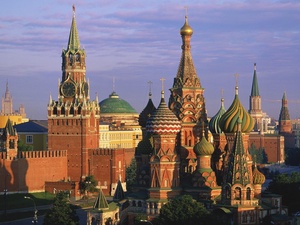Russian President Vladimir Putin last week noted that non-profits blacklisted on the government’s foreign agent list are turning down funding from abroad and that, as a result, their numbers are shrinking.
Russian President Vladimir Putin last week noted that non-profits blacklisted on the government’s foreign agent list are turning down funding from abroad and that, as a result, their numbers are shrinking.
The initial foreign agent legislation, brought into force when Putin faced unprecedented nationwide street protests that he blamed on foreign influences, targets non-profits that receive even small amounts of funding from outside the country.
The groups are examined for suspected “political activity,” and are branded by the Justice Ministry as “foreign agents,” a laden term that Russians unquestioningly associate with espionage.
The ministry then publicizes the list and forces groups to advertise their foreign agent status. Failing to do so leads to crippling fines and eventual closure.
Numerous groups designated as foreign agents – like Bellona Murmansk and the Environmental Rights Center Bellona – have chosen to close themselves rather than struggle with court costs in a system weighted against them.
Sixty-two other non-profits that were forced into the margins by the law have brought suit against the Kremlin in the European Court of Human Rights. There, they allege that the foreign agent law amounts to a government led witch-hunt to ferret out and silence critical opinion.
If that’s found to be the case, Putin’s law, by his own admission, is hitting its mark.
During remarks last Monday to the Presidential Council for Civil Society and Human Rights – a government group that has sought unsuccessfully to clarify aspects of the law – Putin noted that the number of foreign agent NGOs operating in Russia had fallen from 165 to 89 this year.
He further said that four times fewer non-profits were blacklisted as foreign agents in 2017 than had been in the previous year – a trend he said owed to fewer non-profits engaging in hazily defined “political activity” or because non-governmental organizations are turning away from foreign funding.
Putin likewise alluded to non-profits widely taking a “second path,” which involves applying to the government itself for funding. The Kremlin bestows what are called presidential grants, which Putin says have increased by seven times over the last five years.
Indeed, by the government’s own reckoning, a number of NGOs that were tarred with the foreign agent label have received, while still on the blacklist, a presidential grant.
But the effect of the 2012 law continues to corrode a civil society sector of which the Kremlin is wary. The figures reported by Putin indicate that only 0.39 percent of the NGOs operating in Russia are currently classified as foreign agents.
That represents a precipitous drop fall 2015. That year, it was found that the foreign agent law had succeeded in shuttering over a third of the country’s non-profits, dropping the number of civil society groups to a mere 160.
Since, that number has risen and dropped as more groups have been added to the list, and groups thereafter elect to shut themselves.
The case currently before the European Court of Human Rights could end with the court demanding Moscow overturn its foreign agent law – thought he plaintiffs largely expect the Kremlin to ignore any ruling against it.
But much of the critical damage to Russia’s civil society sector has already been done. A poll taken in February by the independent Levada Center – itself blacklisted by the government – found that most Russians associate the term “foreign agent” with espionage and treason.
Whether “foreign agent” organizations close or not, they are widely viewed as pariahs and up to no good in Putin’s Russia – which is precisely the effect the initial legislation had hoped for. In such an atmosphere, it can only be expected that their numbers will continue to decrease.




